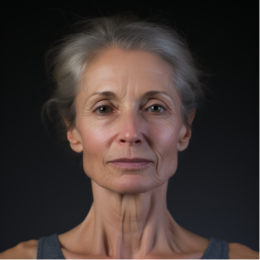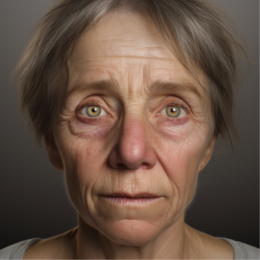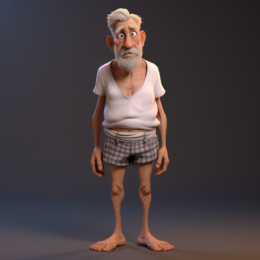The Invisible Grip: How Anxiety Affects Your Body and What You Can Do About It

What Is an Anxiety Disorder?
Anxiety is an emotional and psychological response to stress or perceived threats. While it’s natural to feel anxious occasionally (hello, public speaking!), chronic anxiety can be debilitating and impact your quality of life. It’s like that over-enthusiastic alarm clock that goes off even when you don’t have to wake up early; it messes with your day for no good reason.
What Are Signs of Anxiety?
So, how do you know you’re anxious and not just, say, experiencing a caffeine overload? Well, anxiety usually manifests in a variety of ways:
- Emotional symptoms like excessive worry, restlessness, and irritability
- Cognitive symptoms such as trouble concentrating or irrational fears
- Physical symptoms like trembling, sweating, or rapid heart rate
Meet Sarah, a 29-year-old graphic designer. Lately, Sarah has noticed she’s been feeling increasingly uneasy at work. Her heart pounds like a drumline in a marching band, she’s more irritable than a cat in a bathtub, and her focus has disappeared faster than donuts at a morning meeting. Sarah’s symptoms, as it turns out, are textbook signs of anxiety.
How Does Anxiety Affect the Body?
Statistics:
- About 40 million adults in the U.S. have an anxiety disorder, making it the most common mental illness (Source: Anxiety and Depression Association of America).
- Anxiety disorders can contribute to other physical health issues, like heart disease and gastrointestinal problems (Source: Mayo Clinic).
When you’re anxious, your body goes on high alert. This isn’t necessarily a bad thing in the short term. The stress hormones—adrenaline and cortisol—that flood your system are the body’s way of preparing for what it perceives as a threat. This is commonly known as the “fight or flight” response, which allows our ancestors to react quickly to predators and other dangers. But when you experience anxiety on an ongoing basis, that’s when things can get problematic for your body.
Short-Term Physical Responses:
- Heart Rate: A rapid heart rate is a common immediate reaction. Your heart pumps more blood, gearing you up for quick action.
- Breathing: You may find yourself breathing faster as the body tries to take in more oxygen for perceived physical exertion.
- Sweating: Sweating more than usual helps to cool down the body, preparing it for physical activity.

Long-Term Physical Impact:
- Muscle Tension and Aches: Constant anxiety can keep your muscles tensed up. Over time, this can lead to headaches, migraines, or musculoskeletal disorders.
- Digestive Issues: Anxiety can disrupt your digestive system, leading to symptoms like indigestion, gas, and constipation. In some cases, it may even contribute to irritable bowel syndrome (IBS).
- Sleep Problems: Insomnia and frequent awakenings are common complaints. Poor sleep can then exacerbate anxiety symptoms, leading to a vicious cycle.
- Immune System: Chronic stress and anxiety can weaken your immune system, making you more susceptible to infections.
- High Blood Pressure: Ongoing anxiety can contribute to long-term issues like hypertension, which in turn increases the risk for heart disease.
Sarah, for instance, has been battling sleep issues and digestion problems. Her doctor has advised her that these are likely physical symptoms of her anxiety.
Quick Poll
Causes of Anxiety
Anxiety is often like a complex puzzle comprised of various pieces that include genetic, environmental, and psychological factors. Let’s break down some of the leading causes:
Genetic Factors
While anxiety, like any other mental health condition, can’t be solely attributed to genetics, there’s ample evidence to suggest that it does play a role. If you have a family history of anxiety disorders, you’re more likely to develop one yourself.
Environmental Stressors
Day-to-day stress, whether at work, home or in social settings, can contribute to anxiety. For Sarah, our 29-year-old graphic designer, high-pressure deadlines and a stressful work environment amplified her anxious feelings.
Trauma
People who have experienced abuse, whether it’s physical, emotional, or psychological, are often more susceptible to developing an anxiety disorder. A single traumatic event, such as a car accident or natural disaster, can also trigger long-lasting anxiety.
Medical Causes
Certain medical conditions, like heart disease, diabetes, or hormone imbalances, can also cause anxiety or exacerbate existing symptoms. Some medications may also have side effects that include heightened anxiety.
Substance Abuse
The misuse of drugs and alcohol can lead to increased anxiety. Substances that are stimulants, like caffeine and nicotine, can aggravate anxious feelings as well.
Lifestyle
Lack of exercise, poor nutrition, and inadequate sleep can all worsen anxiety symptoms. Even the constant bombardment of news and social media can contribute to a state of heightened anxiety.
Mental Health Disorders
Often, anxiety is comorbid with other mental health disorders like depression, forming a complex web of symptoms that require a multifaceted approach to treatment.
Understanding the root causes of anxiety can offer you the knowledge you need to tackle it head-on. Whether making lifestyle changes, seeking medical intervention, or opting for therapeutic solutions, recognizing the underlying causes is a crucial step toward effective treatment.
Statistics:
- Genetics account for about 30-40% of the risk for anxiety disorders (Source: National Institute of Mental Health).
- Experiencing a traumatic event increases the likelihood of developing an anxiety disorder (Source: American Psychological Association).
How to Treat Anxiety
Now that we know what causes anxiety, what can we do to calm it? Treatment often involves a combination of therapy, medication, and lifestyle changes, such as:
- Cognitive Behavioral Therapy (CBT)
- Anti-anxiety medication or SSRIs
- Exercise and dietary changes
- Mindfulness and relaxation techniques
Sarah is currently undergoing CBT and has started to include exercise in her daily routine. She’s finding these steps helpful in managing her symptoms.
Prevention of Anxiety
While you can’t eliminate anxiety, you can take steps to manage it better:
- Regular exercise
- Adequate sleep
- Balanced diet
- Stress management techniques
Conclusion
Anxiety is more than just an emotional experience; it leaves a genuine impact on your body. Identifying the signs early and taking appropriate steps to manage them can make a difference.
SO HOW ABOUT IT, READERS? CAN YOU RELATE TO SARAH’S EXPERIENCES? WHAT HAVE YOU DONE TO CALM YOUR ANXIETY? WE’D LOVE TO HEAR FROM YOU!





